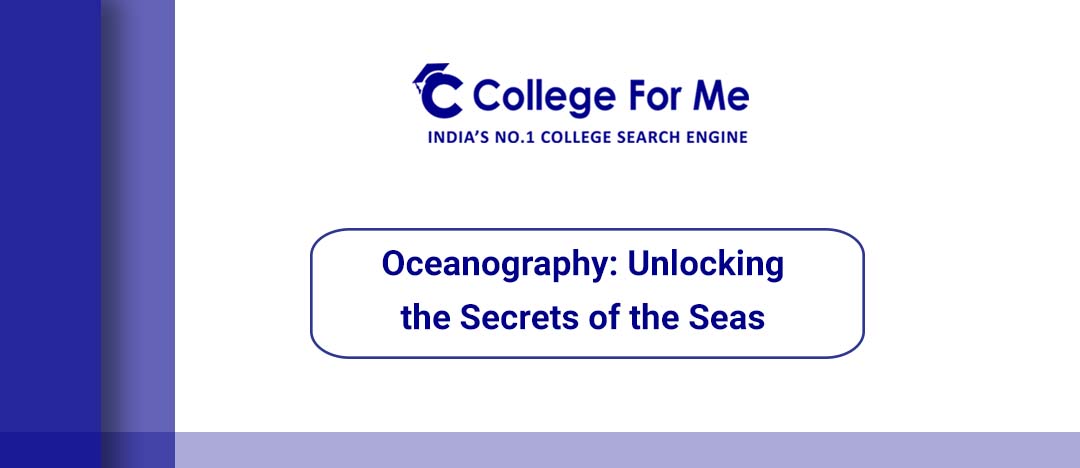Career Scopes Of A B.Tech. Student
There is a high demand for B.Tech. degree holders in the private sector, yet, there is also the opti...

The oceans cover over 70% of our planet's surface, yet they remain one of the most mysterious and least explored realms on Earth. Oceanography, the scientific study of the oceans, is the key to unlocking the secrets hidden beneath the waves. In this article, we'll embark on a journey into the world of oceanography and discover how it unravels the mysteries of the seas.
The Birth of Oceanography
Oceanography as a formal science has relatively recent origins. While people have always been fascinated by the sea, it wasn't until the 19th century that oceanography began to take shape as a distinct scientific discipline.
The HMS Challenger Expedition (1872-1876) is often considered the birth of modern oceanography. This groundbreaking voyage circumnavigated the globe, collecting data on everything from temperature and salinity to marine life at various depths. The findings laid the foundation for our understanding of oceanography.
The Four Major Disciplines of Oceanography
Oceanography is a multidisciplinary field that can be divided into four major disciplines:
The Tools of Oceanography
Oceanographers rely on a wide range of tools and technologies to study the oceans:
Key Contributions of Oceanography
The Future of Oceanography
As technology advances, our ability to explore and study the oceans grows. Future developments may include improved autonomous underwater vehicles, more powerful sensors, and enhanced data analysis techniques. Oceanography will continue to be at the forefront of addressing critical global challenges, such as climate change, sea-level rise, and the conservation of marine biodiversity.
In conclusion, oceanography is the key to unveiling the hidden mysteries of the seas. It bridges the gap between our fascination with the ocean and our understanding of its complex dynamics and vital role in the health of our planet. As we delve deeper into the blue depths, oceanography promises to reveal even more about the world beneath the waves and its profound impact on life on Earth.

There is a high demand for B.Tech. degree holders in the private sector, yet, there is also the opti...

If you are looking for a bright and prospective career, then getting a B.Tech. in CSE must be under ...
Comments (0)